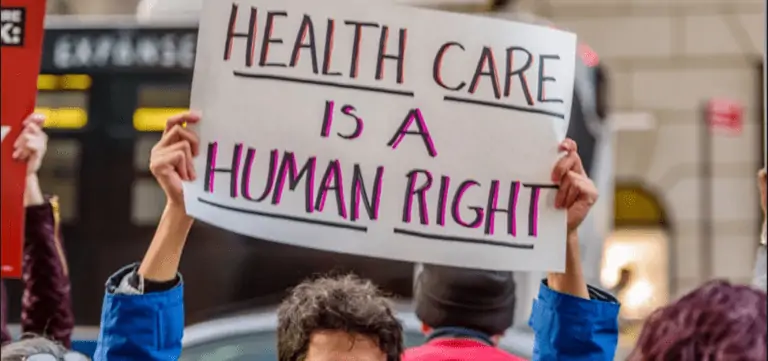The Autistic Self Advocacy Network (ASAN) applauds the House of Representatives’ introduction of the Health Equity and Accountability Act (HEAA), a bill which takes important steps that improve the fairness of our health care system for people with disabilities and people of color. For too long, people with disabilities and people of color – and especially people of color with disabilities – have faced tremendous systemic barriers to accessing health care. HEAA invests federal dollars in a wide range of policy solutions to address these barriers.
HEAA includes a major step to help more people with disabilities access health care. The bill would make it possible for people with disabilities to be recognized as a “Medically Underserved Population.” When a community is considered a Medically Underserved Population, the federal government provides extra funding and tailored services to increase access to care. People with disabilities are in desperate need of this kind of sustained attention. Right now, the definition of a Medically Underserved Population is based on geography. That means that, for example, local communities where there are many people of color or people living in poverty can be considered Medically Underserved and access these resources–but not communities that are more spread out, like people of color in general, or people with disabilities living in the broader community. If passed, HEAA would allow the Secretary of Health and Human Services to consider a community that is not in a specific place to still be Medically Underserved. This would allow the Secretary to provide these resources to many more groups, including the disability community. This is a critical tool to improve health care, health equity, and health outcomes for the disability community. ASAN strongly supports this provision.
In addition to this provision, HEAA does many other things to improve health equity. The bill requires federal health programs to collect critical data on race, ethnicity, gender identity, socioeconomic status and disability. It funds more research on social aspects of health, like income, location, race, and disability. HEAA expands health care coverage and access in underserved communities, especially in rural areas and for communities of color. The bill eliminates funding limits on Medicaid for U.S. territories and will stop Medicaid from collecting money from a dead person’s estate to pay for long-term services and supports they used while they were alive. The bill provides better language assistance services so that more people can understand and access the health care system, including reasonable accommodations for people with cognitive and communication disabilities. HEAA provides greater federal funding for mental health services for communities of color and urgently needed funding for mental health and counseling services in schools. And, the bill invests in developing a diverse health care workforce better prepared to serve the needs of BIPOC people and people with disabilities.
ASAN acknowledges that health inequities and unequal health care access are complex problems that will take a lot of time and resources to fully address. Passing HEAA is an important first step in that process. We all deserve high-quality health care, no matter who we are, where we live, or what disabilities we have. We urge Congress to act swiftly to pass this bill and enact it into law. For more information on HEAA, please contact ASAN’s Deputy Director of Public Policy, Greg Robinson, at grobinson@autisticadvovacy.org.
The Autistic Self Advocacy Network seeks to advance the principles of the disability rights movement with regard to autism. ASAN believes that the goal of autism advocacy should be a world in which autistic people enjoy equal access, rights, and opportunities. We work to empower autistic people across the world to take control of our own lives and the future of our common community, and seek to organize the autistic community to ensure our voices are heard in the national conversation about us. Nothing About Us, Without Us!

